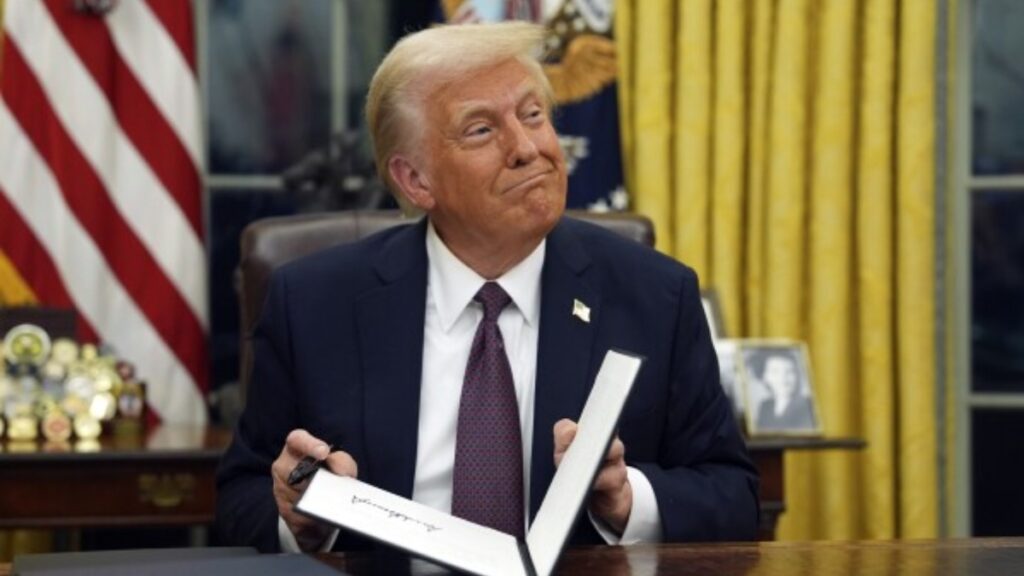A federal court’s decision to invalidate President Donald Trump’s sweeping tariffs has ignited a fierce backlash from the White House, with Trump directing sharp criticism at the judiciary and prominent conservative legal figures.
The U.S. Court of International Trade ruled that Trump’s imposition of tariffs under the International Emergency Economic Powers Act exceeded presidential authority. The court emphasized that the IEEPA does not grant the president the power to unilaterally impose broad import taxes, a move that challenges a central component of Trump’s economic agenda.
In a strongly worded social media post, Trump lambasted the judges, including Timothy Reif, a Trump appointee, labeling them as “backroom hustlers.” He argued that the ruling undermines the executive’s ability to protect U.S. economic interests and called on the Supreme Court to overturn the decision swiftly.
Trump’s ire extended to Leonard Leo, co-chair of the Federalist Society, accusing him of providing poor advice on judicial nominations. Trump claimed that Leo “probably hates America” and criticized the Federalist Society for their role in shaping the judiciary.
The court’s decision has prompted a temporary stay by the U.S. Court of Appeals for the Federal Circuit, allowing the tariffs to remain in effect pending further review. Briefs are due by June 9, and the case may ultimately reach the Supreme Court.
The ruling has sparked a broader debate over the separation of powers and the extent of presidential authority in trade matters. Legal experts and lawmakers are scrutinizing the implications of the decision, with some advocating for legislative measures to clarify the limits of executive power in imposing tariffs.




